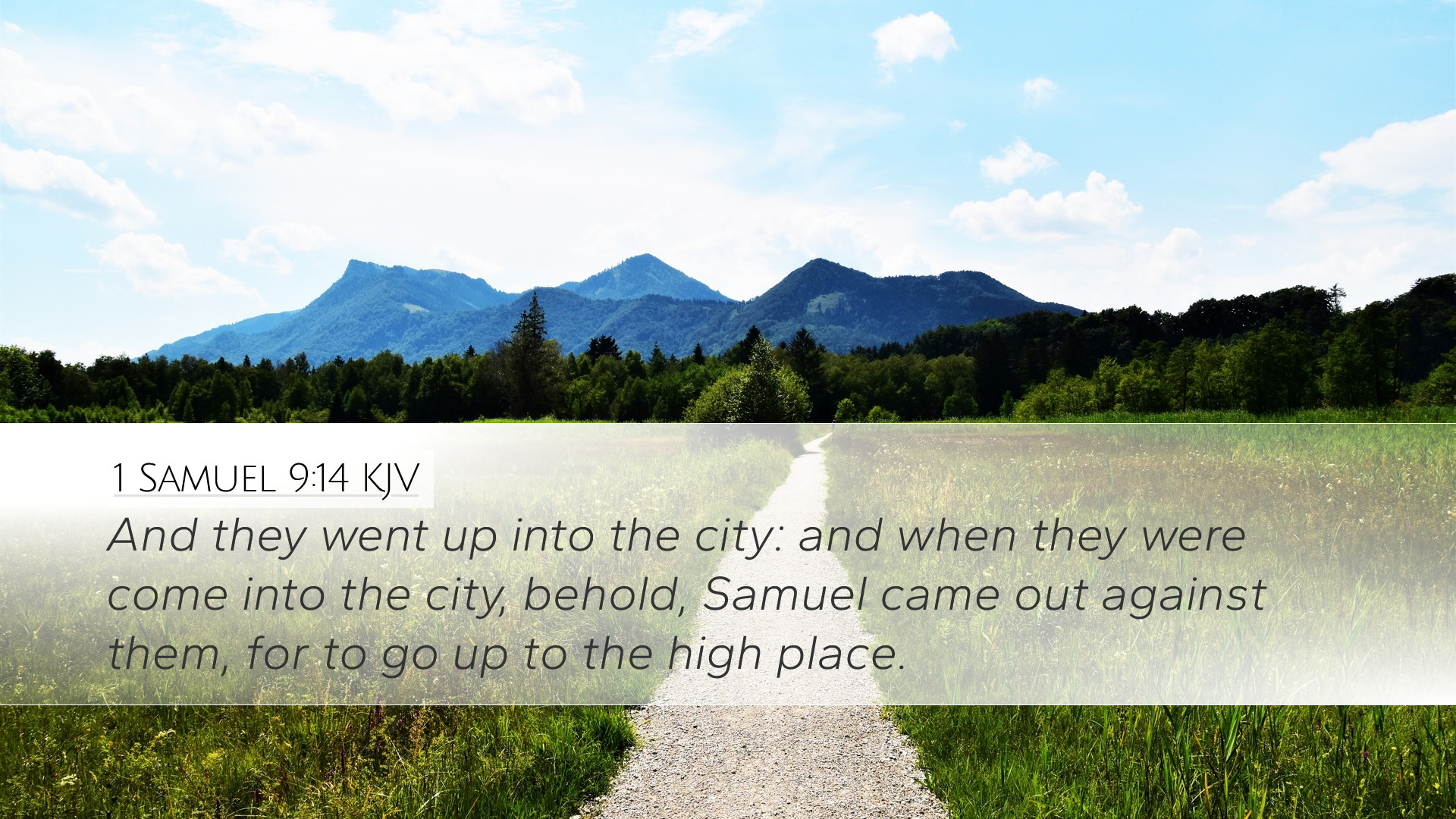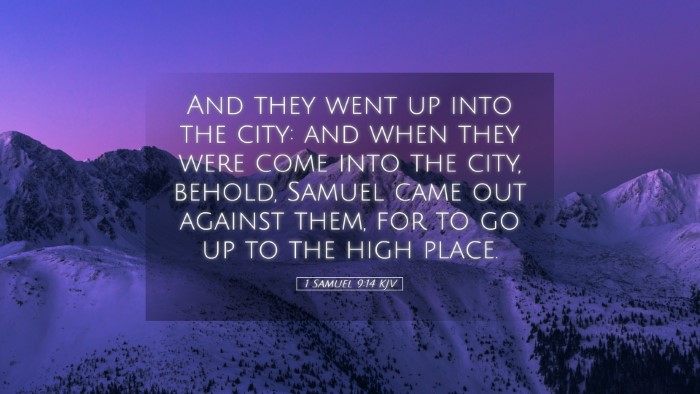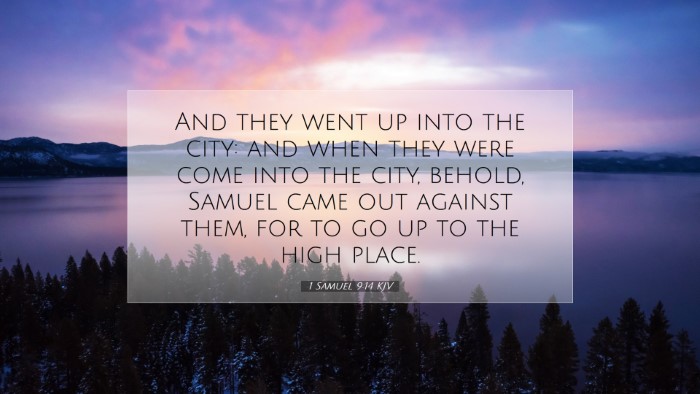Commentary on 1 Samuel 9:14
Bible Verse: "And they went up into the city; and when they were come into the city, behold, Samuel came out against them, for to go up to the high place." (1 Samuel 9:14, KJV)
Contextual Background
The passage from 1 Samuel 9:14 falls within the narrative of the anointing of Saul as Israel’s first king. The chapter describes the providential steps leading up to Saul’s meeting with Samuel, the prophet. This significant moment not only marks a pivotal shift in Israel’s governance but also emphasizes the divine orchestration of events. Samuel, who holds a prophetic role, is crucial in guiding the nation as it transitions from theocratic leadership to monarchy.
Interpretation and Insights
Divine Providence
In this verse, we see a clear display of divine intervention. Matthew Henry highlights the idea that the Lord orchestrated events in Saul's life, leading him to this critical encounter with Samuel. The journey of Saul and his servant represents a blend of human endeavor and divine purpose. As they venture into the city, it is not merely chance that brings them to Samuel; rather, it is part of God’s sovereign plan.
Samuel's Role as a Leader
Samuel's appearances throughout the narrative illustrate his pivotal role as a spiritual leader. Albert Barnes notes that Samuel went out to meet Saul, indicating his active involvement in the proceedings of the nation. This act not only demonstrates his authority but also his readiness to embrace the new direction that Israel was taking. Samuel, as the last judge and the prophet, serves as a bridge between the people and their new political identity.
The Significance of the High Place
The reference to the “high place” is of theological significance. Adam Clarke points out that high places were commonly used for worship in ancient Israel. The specific high place Samuel intended to ascend is indicative of worship and sacrifice. This highlights that the appointment of a king is not merely political; it is deeply spiritual and must align with God’s will. The engagement in worship underscores the need for divine guidance in this new era of leadership.
Expectations of Kingship
This moment is filled with tension and expectation. The Israelites had demanded a king to lead them, as seen earlier in 1 Samuel. The forthcoming coronation is laden with promises and responsibilities that sap the glory of a monarchical system. Barnes elucidates that the ascent of Saul as king must be steeped in adherence to God’s laws and principles. The very first act of Saul’s kingship begins with his acknowledgment of God’s role, highlighting the importance of seeking divine guidance.
Theological Implications
Meeting God’s Chosen
Saul’s meeting with Samuel is emblematic of God’s choice for leadership. Henry considers that the encounter serves as a reminder that God appoints leaders according to His own will, often confounding worldly expectations. This notion calls pastors and leaders today to reflect on who they believe is appointed by God in their congregations and communities.
Human and Divine Cooperation
This passage represents a complex interplay between human actions and divine providence. Clarke emphasizes that while Saul and his servant took initiative in seeking lost asses, God’s purpose was at work behind the scenes guiding them to their destiny. This is a meaningful lesson on the synergy between faith and action; believers are called to pursue God’s leading actively while trusting in His ultimate control over their circumstances.
Application for Today’s Leaders
For pastors, theologians, and students, 1 Samuel 9:14 serves as a critical reflection point on leadership in the church and broader community. The narrative encourages leaders to recognize that God’s purpose can come to fruition through unexpected means and that spiritual oversight is essential in all leadership roles.
Embracing God’s Will
The successful journey of Saul demonstrates that embracing God’s will is paramount. This should inspire modern leaders to seek God persistently, acknowledging that His plans often surpass human understanding and capability.
Prayerful Consideration
As Saul and his servant journeyed and prayed in faith, today’s leaders are reminded of the importance of prayer and seeking God’s direction in their ministries. Engaging with God not only prepares leaders for their roles but also aligns their vision with His purpose.
Conclusion
1 Samuel 9:14 encapsulates a significant moment in Israel’s history, marked by divine orchestration and the beginning of a new leadership paradigm. For pastors and theologians, this verse holds enduring insights about the nature of God's providence, the importance of spiritual authority, and the necessity of aligning human initiatives with divine purposes. The passage invites ongoing reflection and application in contemporary contexts, affirming that the journey of faith is both a profound calling and a challenging path requiring reliance on God.


